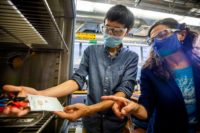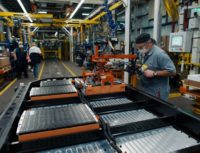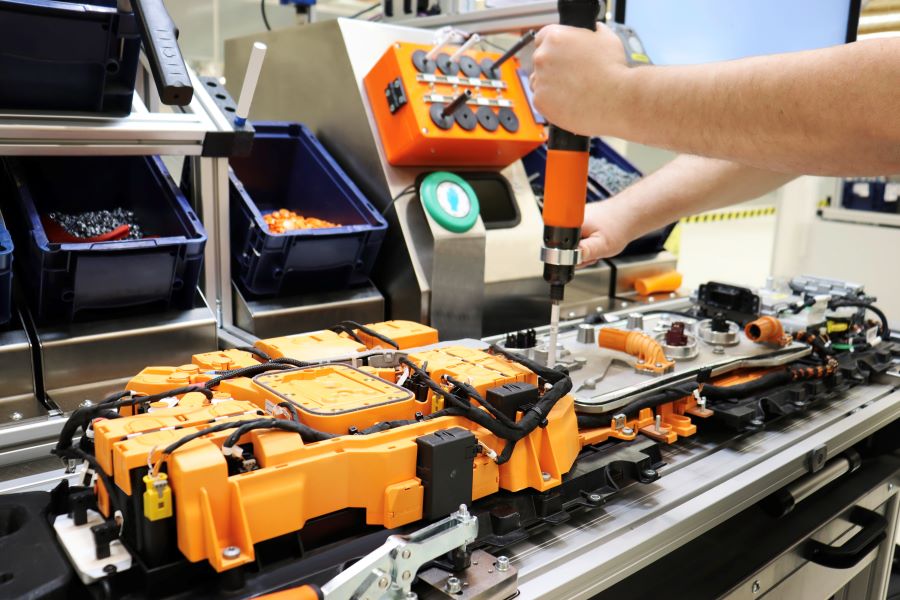DEARBORN, MI—Ford Motor Co. is creating a new global battery center of excellence to accelerate research and development activity, including in-house battery manufacturing. Ford Ion Park will feature a $185 million collaborative learning lab dedicated to developing, testing and building battery cells and cell arrays.
The 200,000-square-foot facility will include pilot-scale equipment for electrode, cell and array design and manufacturing. It will also feature state-of-the-art technology to pilot new manufacturing techniques that will enable engineers to quickly scale breakthrough battery cell designs.
“Investing in more battery R&D ultimately will help us speed the process to deliver more, even better, lower cost EVs for customers over time,” says Hau Thai-Tang, Ford's chief product platform and operations officer. “[We are] building on nearly two decades of battery expertise by centralizing a cross-functional team of 150 experts in development, research, manufacturing, planning, purchasing, quality and finance to help [us] more quickly develop and manufacture battery cells and batteries.
“We are creating new tools and solutions we need for a carbon-free, affordable and better future,” claims Thai-Tang. “We are modernizing [our] battery development and manufacturing capabilities so we can better control costs and production variables in-house, and scale production around the world with speed and quality.”
Ford’s new Battery Benchmarking and Test Laboratory in Allen Park, MI, will help develop cells and chemistries to power the automaker’s growing lineup of electric vehicles. The 185,000-square-foot facility, which opened late last year, has 150 test chambers and 325 channels for development work.
The state-of-the-art lab houses battery cell and pack test rooms, test benches and benchmarking facilities to support battery cell design validation, controls calibration, pack development and pilot battery pack projects with different chemistries. The $100 million facility enables engineers to replicate the performance of full-scale production batteries under extreme weather and customer use cases, speeding implementation in future vehicles.
“While some automakers have placed their bets, we are going to use this lab with the help of partners and suppliers to fine-tune our batteries to our vehicles and customer needs—exploring next-generation lithium-ion solutions, including solid-state batteries,” says Anand Sankaran, director of electrified systems engineering, who will lead the Ford Ion Park team as its new director.
Ford is also increasing its investment in Solid Power, a battery manufacturer in Louisville, CO, that specializes in solid-state batteries for EVs.
“Solid-state batteries are showing great promise,” claims Thai-Tang. “They don’t use the liquid electrolyte found in conventional lithium-ion batteries, can be lighter, with greater energy density, and provide more range and lower cost.”



